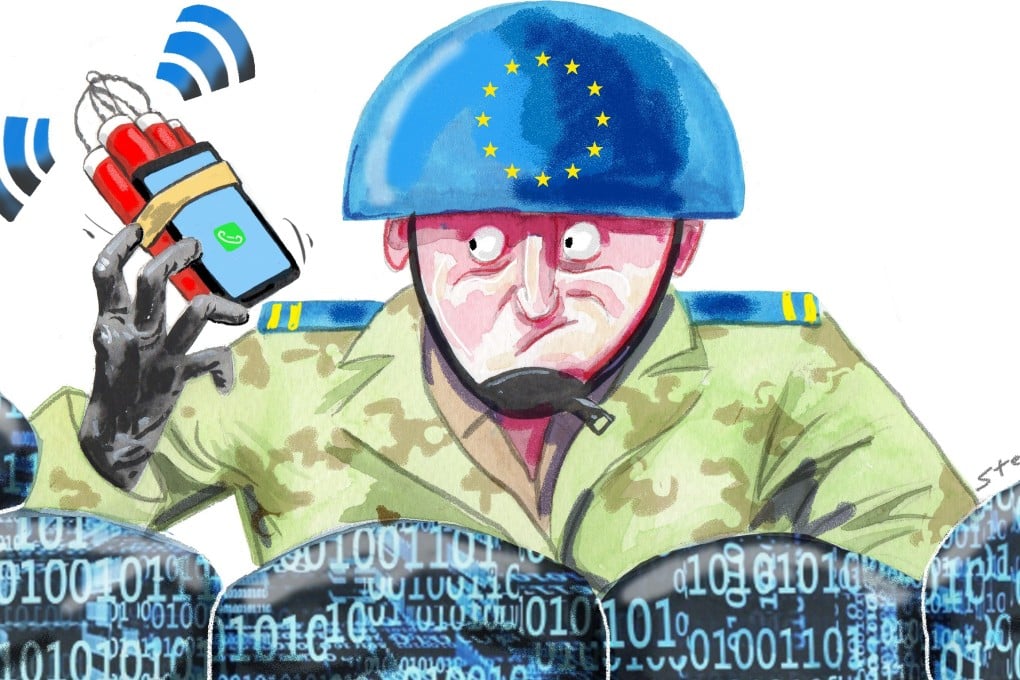Advertisement
Opinion | Huawei’s troubles have exposed the US-China tech war. How prepared is Europe to defend its interests?
- Björn Fägersten and Tim Rühlig say in a world where power flows from control of technological infrastructure, European Union states lag behind both the US and China and must secure their commercial and security interests before it is too late
Reading Time:4 minutes
Why you can trust SCMP

For the Chinese tech giant Huawei, 2019 started like 2018 ended – as a nightmare.
In Poland, a Huawei official was arrested and charged with espionage. The US Department of Justice filed charges against the company over financial fraud, money laundering and conspiracy.
Norway’s justice minister announced that the country is considering excluding Huawei from the roll-out of its next-generation wireless network, better known as 5G, over national security concerns. Germany is also considering ways to shut the Chinese tech giant out of its 5G network, even though the Federal Office for Information Security had only last year voiced its opposition to banning Huawei.
Advertisement
With the US-China trade war paused for the time being, a new battlefield is coming into the focus – the contest among nations and tech giants over the future of 5G and the digital economy. China’s tech-giant Huawei has fronted this battle.
Western intelligence services, most prominently the Five Eyes coalition – comprising Australia, the US, Canada, New Zealand and the UK – have increasingly sounded warnings over Huawei’s activities and suggest banning the Chinese company from the roll out of 5G internet.
Advertisement
Advertisement
Select Voice
Select Speed
1.00x

